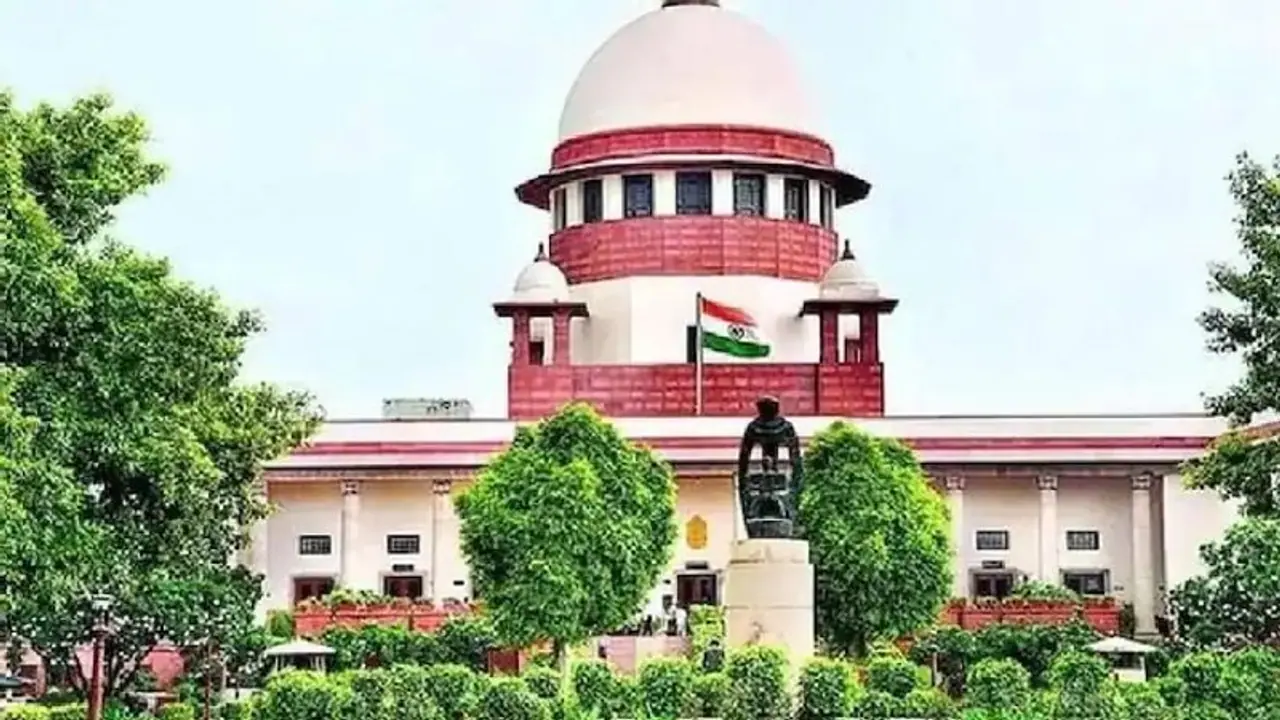A bench of Justices Sanjiv Khanna and M M Sundresh issued notices to the Centre and others on the petitions filed by veteran journalist N Ram, Trinamool Congress MP Mahua Moitra, and activist lawyer Prashant Bhushan.
The Supreme Court directed the central government to produce original records relating to its decision to block a BBC documentary on the Gujarat riots in 2002 on Friday, February 3, 2023.

A bench of Justices Sanjiv Khanna and M M Sundresh issued notices to the Centre and others on the petitions filed by veteran journalist N Ram, Trinamool Congress MP Mahua Moitra, and activist lawyer Prashant Bhushan. In addition, it gave notice in response to lawyer M L Sharma's plea. Sharma filed a separate petition, which has now been tagged with similar pleas challenging the government's decision to block the documentary.
The bench said, "We are sending out notices. Within three weeks, a counter-affidavit must be filed. After that, rejoin within two weeks. On the next hearing date, the respondents will also produce original records before this court," said the bench. The case is scheduled for a hearing in April.
The bench asked the petitioners why they did not approach the High Court.
Senior advocate CU Singh argued on behalf of Ram and others that the government had used emergency powers under the Information Technology (IT) Rules to block the documentary. Adding that he was requesting that the Centre place all original records on record. The Supreme Court added that people have been accessing the documentary.
One of the petitioners has alleged that the ban on the documentary, 'India: The Modi question', was 'malafide, arbitrary and unconstitutional.'
In response, Law Minister Kiren Rijiju tweeted, "This is how they waste the precious time of Hon'ble Supreme Court where thousands of common citizens are waiting and seeking dates for justice."
In their plea, Ram and others have urged a ruling that would prevent the government from restricting their right to 'receive and disseminate information' about the documentary.
"All citizens, including the press, have the fundamental right to view, form an informed opinion, critique, report on, and lawfully circulate the contents of the documentary, as the right to free speech and expression incorporates the right to receive and disseminate information...," the plea said, citing several Supreme Court rulings on free speech and expression.
The plea also sought quashing of 'all orders directly or indirectly censoring' the information, including those shared on social media, be overturned.
Additionally, the plea said, "Issue a writ of Mandamus or any other appropriate writ, order, or direction to the respondents restraining them from carrying out orders restricting freedom of speech and expression without first making them public on a centralised database."
The petition, joined by Twitter Communications India Private Ltd and Google India, also requests that the petitioners' tweets be restored.
"The executive's power under Section 69 A to lay down directions for blocking public access' is limited to the sovereignty and integrity of India, defence of India, security of the State, friendly relations with foreign states, or public order, or for preventing incitement to the commission of any cognisable offence relating to the above," it said.
The BBC documentary's contents are protected under Article 19(1)(a) of the Constitution (freedom of speech and expression), adding that the series' contents do not fall under any of the restrictions specified in Article 19 (2).
The plea mentioned, "On January 17, 2023, BBC aired the first of a two-part documentary series titled, 'India: The Modi Question,' which critically evaluates the role of Prime Minister Narendra Modi, who was the then-chief minister of Gujarat in 2002 when riots erupted, in which thousands
lost their lives."
It challenged the ban imposed by the Information and Broadcasting Ministry Secretary.
Under Rule 16 of the Information Technology (Intermediary Guidelines and Digital Media Ethics Code) Rules 2021, Twitter India was directed to block 50 tweets containing links to YouTube videos of the BBC documentary. Following this, Bhushan's tweet and the link to Moitra's URL were removed.
"The impugned directions were issued by the secretary of the information and broadcasting ministry in his capacity as an authorised officer under Rule 13(2) of the IT Rules 2021. The directions appear illegal as they are in direct violation of the interim order... issued by the Bombay High Court," according to the plea.
The documentary's first episode aired on January 17, with the second airing on January 24.
Sharma's PIL also urged the Supreme Court to summon and examine the BBC documentary, both parts one and two, and to take action against those responsible for and involved in the 2002 Gujarat riots, directly and indirectly.
In his PIL, he raised a constitutional question, and the Supreme Court must decide whether citizens have the right under Article 19 (1) (2) to see news, facts, and reports about the 2002 Gujarat riots. Sharma has requested that the government order be overturned.
According to the plea, the BBC documentary contains 'recorded facts' that are also 'evidence' and can be used to further the victims' cause of justice.
On January 21, the government issued instructions for blocking a number of YouTube videos and Twitter posts that contained links to the documentary.
(With inputs from PTI)
Also Read: Supreme Court agrees to hear plea challenging Centre's decision to ban BBC documentary on PM Modi
Also Read: BBC documentary row: Over 20 students detained at Delhi University ahead of planned screening
Also Read: 'Attempt completely foiled': Jamia VC on screening of BBC documentary on PM Modi
